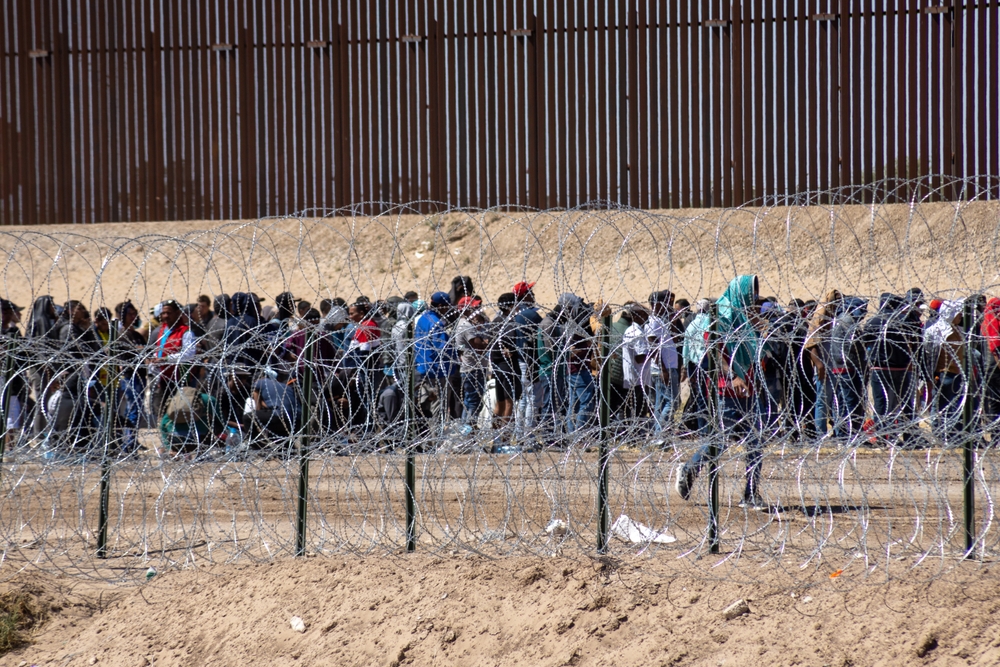
Former Democratic Presidential Candidate Calls Border An ‘Invasion’
Former Democratic Party presidential candidate Al Sharpton criticized the Biden administration’s approach to the border crisis, calling it an “invasion.” The statement marks one of the furthest departures from President Joe Biden from within the Democratic Party.
The MSNBC host made the comments during an interview with Sen. Chris Murphy (D-CT), who is supporting the recently proposed immigration bill. Sharpton said that there were many Americans “outraged” at the large “influx of migrants.”
He then criticized members of Congress who were not supporting a change and “allowing this to continue.”
“”I mean, you’re getting migrants beating up policemen in the streets of New York. You’re seeing an influx of migrants all over the country that, frankly, have people outraged. Couldn’t there be some kind of public pressure put in the next couple of days in some of these senators’ states saying, ‘Why are you allowing this to continue?” he asked Murphy.
The host continued, saying that the country was “looking every day at the invasion of migrants.” He then asked if there could be more pressure placed on politicians “in their home states?”
Al Sharpton talks about the recent police beating in NYC and labels the border crisis as a migrant INVASION
‘…But the border… I mean, we are looking everyday at the invasion of migrants and they are playing a time game with politics on this…’ pic.twitter.com/ackmdtKt9l
— Unlimited L's (@unlimited_ls) February 5, 2024
Sharpton sought the Democratic Party’s nomination for president in 2004 but did not gain traction. Many Democrats, as well as conservatives, criticized his approach to racial issues and apparent antisemitic comments.
However, since running for president, the former pastor received a show on MSNBC and was a staunch supporter of former President Barack Obama.
Sharpton was not the only Democrat to break with the White House over its border policies. Sen. John Fetterman (D-PA) called for stronger border protections in recent weeks, stating that while he supported legal immigration, that the current situation was untenable.
Late last year the freshman senator said that he no longer considered himself a “progressive.”
Fetterman cited the hundreds of thousands of migrants crossing the border in recent months. He cited the influx of about 300,000 migrants, which he said was “essentially the size of Pittsburgh, the second-largest city in Pennsylvania.”







